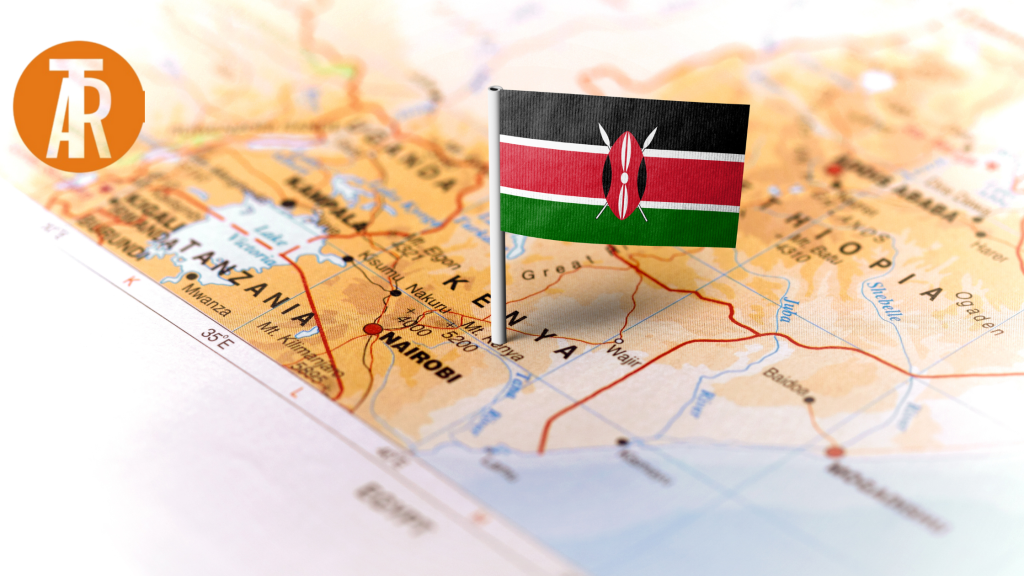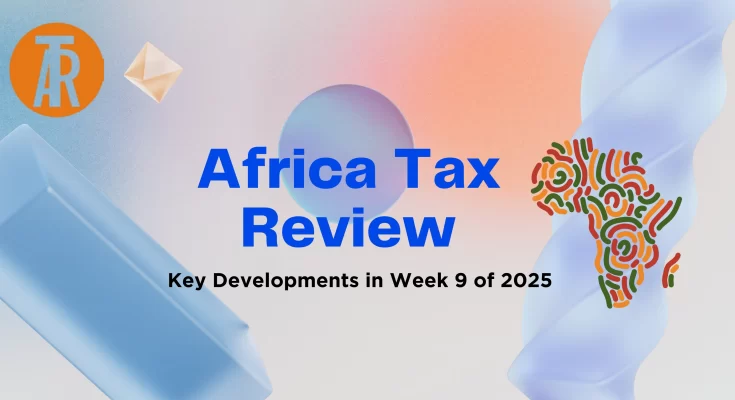Table of Contents
The ninth week of 2025 was a pivotal period for tax policy across several African jurisdictions. From landmark tax reform proposals to dispute resolutions and digital tax policy shifts, governments continued to navigate the complex task of strengthening revenue frameworks amid local and global economic pressures.
This roundup provides a continent-wide analysis of tax-related activities and reforms, supported by cited sources and institutional communications.
Africa Tax Review: Key Developments in Week 9 of 2025

1. South Africa: Budget Delayed Over VAT Increase Dispute
In a historic development, the South African government postponed its annual budget presentation due to a political deadlock within the 10-party coalition.
The disagreement centered on a proposed 2% increase in the VAT rate (from 15% to 17%). The Democratic Alliance, a key coalition partner, opposed the hike, citing its inflationary effect on low-income households and broader economic risks.
This marked the first budget delay since 1994, raising investor concerns over fiscal stability (Financial Times, 2025; AP News, 2025).

2. Botswana: Bold Fiscal Shifts and VAT System Introduction
Botswana’s 2025/2026 National Budget introduced significant tax measures. Among them was the proposal to implement a full-fledged Value Added Tax system, previously absent in the country’s fiscal structure.
In addition, the government announced increases in corporate and personal income tax rates to address fiscal gaps and diversify revenue sources. This marks a strategic shift aimed at boosting domestic resource mobilization (VATUpdate, 2025; Meijburg & Co Africa Tax Newsletter, Feb 2025).

3. Ghana: VAT Policy Overhaul and Trade-Linked Reform
Ghana continued efforts to reform its VAT framework with two key developments. First, the Ghana Standards Authority collaborated with the Ministry of Finance to review VAT on transit services.
This partnership aims to harmonize tax treatment across logistics and trade operations. Second, the government revealed broader plans to modernize the VAT system by simplifying compliance processes, digitizing submissions, and reviewing the VAT exemption list to improve equity and revenue yield (VATUpdate, 2025).
Nigeria Gazettes ECOWAS Tariff Schedule, Deepens Commitment to AfCFTA Trade Framework

4. Guinea-Bissau: New VAT Regime Effective January 2025
Guinea-Bissau officially transitioned to a VAT-based tax system in January 2025. The adoption of VAT represents a key milestone in aligning with the ECOWAS directive on indirect tax harmonization and marks a shift toward improving fiscal transparency and reducing reliance on volatile trade taxes (Meijburg & Co, 2025).

5. Kenya: Digital Economy Taxation and Pension Funding Boost
Kenya introduced an excise duty on services provided by non-resident digital platforms. The measure is intended to expand tax coverage in the growing digital economy and ensure equitable contribution by offshore service providers.
Furthermore, the government increased statutory contributions to the National Social Security Fund (NSSF) effective February 2025, reinforcing efforts to strengthen social protection and retirement funding (Meijburg & Co, Feb 2025).

6. Namibia: Corporate Tax Cut and Income Relief Measures
Namibia’s Ministry of Finance proposed reducing the corporate income tax rate from 32% to 30% in a two-step plan over the next two fiscal years, starting April 2024.
This move is intended to improve competitiveness and attract investment. Additionally, the personal income tax exemption threshold was raised from N$50,000 to N$100,000, providing relief to lower-income earners amid inflationary pressures (ENS Africa, 2025).
Conclusion
Week 9 of 2025 encapsulated the fiscal challenges and innovations across Africa’s tax ecosystem. While South Africa faced political hurdles over tax policy, several other nations advanced bold reforms to modernize systems, broaden their tax base, and respond to socio-economic demands.
With mounting pressure on public finances, such developments reflect a continent actively recalibrating its tax structures to promote sustainability, investment, and inclusive growth.
As always, Africa Tax Review remains committed to delivering timely, evidence-based updates that empower professionals across the continent. Visit www.africataxreview.com weekly for your authoritative digest on what’s changing in tax policy across Africa.
Olatunji Abdulrazaq CNA, ACTI, ACIArb(UK)
Founder/CEO, Taxmobile.Online




